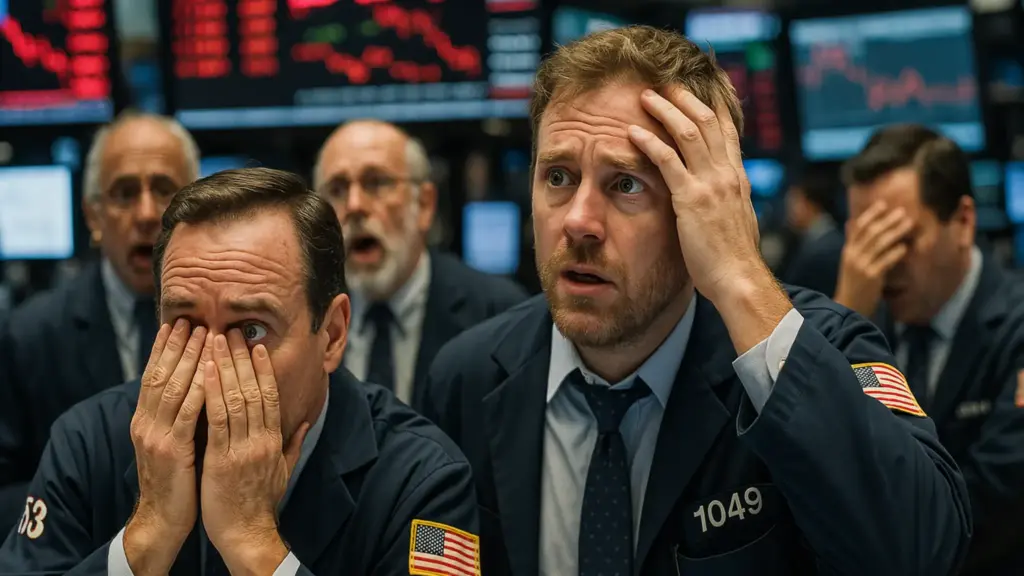NEW YORK – In its highly anticipated quarterly stock-picking guide, The Wall Street Journal has once again published its list of the “Top 10 Stocks to Buy Now.” Within hours of release, market analysts and hedge fund managers across Wall Street began frantically shorting every single stock on the list.
“This is the most reliable contrarian indicator we have,” admitted one investment strategist at Goldman Sachs. “If the WSJ says ‘Buy Tesla,’ I sell. If they say ‘Tech stocks are dead,’ I load up on Nvidia. It’s like clockwork.”
According to insider reports, hedge funds now use the Wall Street Journal’s ‘must-buy’ list as an automatic shorting strategy, with one trader confessing:
“We have an AI algorithm that instantly executes short positions on every stock they recommend. It’s been outperforming the S&P 500 for three years straight.”
The “WSJ Effect” – A Decade of Financial Disaster
Financial historians have been tracking the strange correlation between WSJ stock recommendations and catastrophic investor losses for years. Highlights include:
- 2018: WSJ labels GE a “generational buying opportunity” – stock crashes 40% within six months.
- 2020: WSJ declares oil stocks “dead money” – ExxonMobil surges 300% over the next two years.
- 2022: WSJ calls Peloton a “recession-proof stock” – the company loses 98% of its value.
- 2023: WSJ advises “dump Bitcoin” – Bitcoin hits a new all-time high three months later.
“At this point, I don’t even read the articles,” said one retail investor. “I just do the opposite of whatever they say.”
WSJ’s Editorial Team Defends Its Picks
Despite the growing evidence that its stock recommendations act as a financial death sentence, the WSJ remains adamant that its analysis is sound.
“Our list is based on rigorous research, expert opinions, and cutting-edge market insights,” said the paper’s lead financial columnist. “We have no idea why they keep failing.”
However, a leaked internal memo from Wall street Journal executives revealed a more cynical explanation:
“We don’t care if these stocks go up or down, as long as people keep clicking. Just throw in a mix of Big Tech, a struggling retail company, and whatever Warren Buffett mentioned last week.”
Retail Investors React – And Panic
As the WSJ list made its rounds, Reddit’s WallStreetBets forum exploded in panic.
- A third investor simply asked: “Is this financial sabotage or just bad journalism?“
- One user posted: “WSJ says to buy Apple. Guess it’s time to sell my house and go all-in on puts.“
- Another wrote: “Bro, I was about to invest in Netflix… then I saw it was #2 on their list. Dodged a bullet.“
While small investors scrambled to figure out whether to cut their losses, institutional traders were already cashing in. Citadel reportedly executed over $1 billion in short positions within minutes of the article going live, while Bridgewater Associates made a 12% gain in a single day by betting against the recommended stocks. Meanwhile, Jim Cramer appeared live on CNBC, visibly confused, asking his viewers, “Wait… does this mean I should be bullish or bearish? Someone help.”
The Curse Continues
By the time markets closed, the WSJ’s top pick for the quarter had already dropped 15%, dragging down a wave of retail investors who had trusted the publication’s research. As complaints flooded social media, WSJ editors were reportedly already preparing their next market call: “Gold Is Dead Money!” – virtually guaranteeing a historic rally in the precious metal.
Meanwhile, a hedge fund manager sipping champagne at an undisclosed Manhattan penthouse simply smirked and muttered: “Thanks again, WSJ.”
Craving more news? The EU sets its sights on Melania Trump, while Donald Trump finally uncovers the true culprits behind rising inflation.









